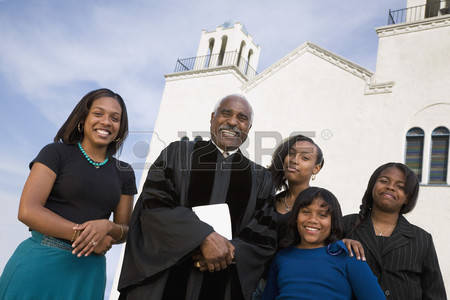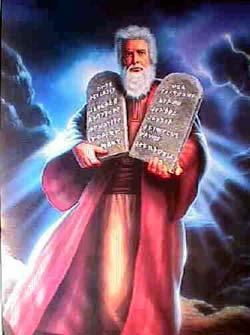While we certainly should agree that prayer is an important part of Christian life, we often struggle to make prayer a primary, consistent part of our lives. We interact with others frequently through out smartphones, but the same urgency is often lacking with our prayers. With our phones, we can talk with people about their needs and concerns, but in prayer, we can to God, the Creator and Sustainor of the universe, about those same needs and concerns. By intervening on behalf of others through prayer, we can change others’ lives. Step into the lives of others by praying for them. Elijah was a prophet known for his praying. God dramatically changed the trajectory of Elijah’s ministry.
Read 1 Kings 17:17-18
17 Sometime later the son of the woman who owned the house became ill. He grew worse and worse, and finally stopped breathing. 18 She said to Elijah, “What do you have against me, man of God? Did you come to remind me of my sin and kill my son?”
The widow of Zarephath is unsure of Elijah’s identity when, after taking the prophet into her home, her son becomes deathly sick. By the end of the story, though, she is ready to proclaim, “Now I know that you are a man of God, and that the word of the LORD in your mouth is truth” (1 Kings 17:24). What enables such a dramatic shift in her outlook? The widow of Zarephath is unsure of Elijah’s identity when, after taking the prophet into her home, her son becomes deathly sick. By the end of the story, though, she is ready to proclaim, “Now I know that you are a man of God, and that the word of the LORD in your mouth is truth” (1 Kings 17:24). What enables such a dramatic shift in her outlook?
Nothing less than the resuscitation of her dead child changes her mind. Elijah’s revival of her child from death to life relieves her doubt about who Elijah is, what his purposes are, and from whom his strange powers originate. Of course, she now believes he speaks God’s truth! Witnessing such a miracle would make a believer out of any of us — at least, we hope it would. But the widow’s profession of faith is not the only movement from doubt to belief in this story.
Elijah himself is anguished by the child’s sickness. His prayer accuses God of having wrought evil in the house that has given him refuge from God’s own drought and famine (17:1). Already in this brief chapter, we learn that he has antagonized the king (17:1), received food from birds (17:2-7), and sought sustenance from a starving widow (17:8-16), all because the word of the LORD has come to him. Obedience, both his and the widow’s, seems to have been rewarded with suffering.
Elijah does not voice this doubt publicly. In all of his interactions with the widow, he adopts a matter-of-fact tone. He does not answer the widow’s invective, in which she accuses him of singling her out and making her answer for her sins (17:18).
Read 1 Kings 17:19-21
19 “Give me your son,” Elijah replied. He took him from her arms, carried him to the upper room where he was staying, and laid him on his bed. 20 Then he cried out to the Lord, “Lord my God, have you brought tragedy even on this widow I am staying with, by causing her son to die?” 21 Then he stretched himself out on the boy three times and cried out to the Lord, “Lord my God, let this boy’s life return to him!”
Elijah took him out of her arms: This vivid detail shows that the widow clutched the dead child tightly in her arms. The upper room where he was staying: The term upper room “Refers to a temporary shelter or room on the roof, accessible from outside the house. Such structures are common in the Near East. This arrangement would allow the widow not only her needed privacy but would safeguard her reputation”.
Then he cried out to the LORD: Elijah prayed with great heart and intimacy with God. He brought this seemingly unexplainable and irredeemable tragedy to God in prayer. Since he knew God led him to this widow, Elijah laid this tragedy on God and asked Him to remedy it.
He stretched himself out on the child three times and cried out to the LORD: This was an unusual prayer technique, but Elijah had no precedent for this. It was not because of his prayer technique, but because of his faith that God answered this prayer. There is an almost irresistible desire to embellish on these wonderful accounts of the power of God. There are those who speak of one such attempt: “Syriac translation, followed by Jerome, that the lad was the prophet Jonah is totally unsatisfactory and historically impossible (cf. 2 Kings 14:25).”
O LORD my God, I pray, let this child’s soul come back to him: “A prayer full of powerful arguments. Thou art the Lord, that canst revive the child; and my God, and therefore wilt not, do not, deny me. She is a widow; add not affliction to the afflicted; deprive her not of the great support and staff of her age. She hath given me kind entertainment; let her not fare the worse for her kindness to a prophet, whereby wicked men will take occasion to reproach both her and religion”.
These words, in which the word also refers to the other calamities occasioned by the drought, contain no reproach of God, but are expressive of the heartiest compassion for the suffering of his benefactress and the deepest lamentation, which, springing from living faith, pours out the whole heart before God in the hour of distress, that I may appeal to Him the more powerfully for His aid. The meaning is, “Thou, O Lord my God, according to Thy grace and righteousness, canst not possibly leave the son of this widow in death.” Such confident belief carries within itself the certainty of being heard. The prophet therefore proceeds at once to action, to attempt to restore the boy to life.
A prayer full of powerful arguments. Thou art the Lord, that canst revive the child; and my God, and therefore wilt not, do not, deny me. She is a widow; add not affliction to the afflicted; deprive her not of the great support and staff of her age. She hath given me kind entertainment; let her not fare the worse for her kindness to a prophet, whereby wicked men will take occasion to reproach both her and religion.
Read 1 Kings 17:22-24
22 The Lord heard Elijah’s cry, and the boy’s life returned to him, and he lived. 23 Elijah picked up the child and carried him down from the room into the house. He gave him to his mother and said, “Look, your son is alive!” 24 Then the woman said to Elijah, “Now I know that you are a man of God and that the word of the Lord from your mouth is the truth.”
We hear that the boy is saved because “God listened to the voice of Elijah” (verse 22). This is surprising because on the surface the story of Elijah seems to be about the power of God’s word. It is a story about getting people to listen to God’s voice. Yet, at this pivotal moment in the narrative, the tide turns because God listened to Elijah’s voice. The boy’s breath returns to him because God recognizes the truth in Elijah’s protest. In this moment of crisis, in response to the truth in Elijah’s words, God mobilizes the power of life and does something God has never done before. God attends to this seemingly small thing — the death of a poor boy — with an enormous act of reversal. God pulls and saves the boy.
When the widow sees her son revived in Elijah’s arms, she proclaims, “You are a man of God…. the word of the Lord in your mouth is truth” (verse 24). Now the woman saw that Elijah’s God could be trusted. In essence the woman confessed that she believed in the Lord God of Israel because He raised er son. The reality of the resurrection is rooted in faith in the living God. Believing in the resurrection of the body is not just for highly spiritual Christians. The resurrection forms the foundation of authentic belief in God. Elijah does not argue, but the reader knows that while her interpretation may be accurate, it does not capture what happened in the upper chamber. The boy’s life returns because God recognized that the word of Elijah was truth.
Even when Elijah protests against God, his word expresses God’s truth. Amazingly, God recognizes it too. Perhaps truth is not just the word of God delivered from on high. Because at least in this narrative, truth emerges out of a dialogue. In the context of this narrative, I expect a recovery of sorts. I expect a divine answer — or at least a narrator’s commentary — that communicates, somehow, that this resurrection miracle was part of God’s plan from the beginning. God thought this would be a great way to show the world that God is not only more powerful than Baal but more powerful than death.
God provides us many opportunities to step into the lives of our friends and family members by praying for them, especially when they encounter life’s trials. Just like the widow in this story, they may hold false ideas about the nature of God or how He deals with people. As we pray and God answers our prayers, the results can lead others to turn to God in faith. When we intercede for others in prayer, we can likewise join with God in restoring lives and leading people to Christ.








